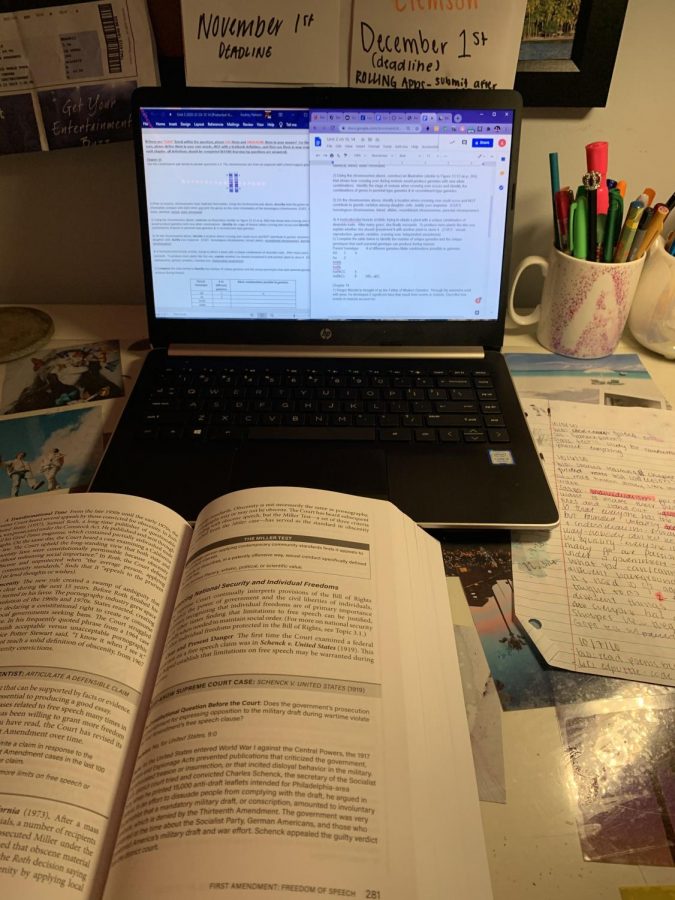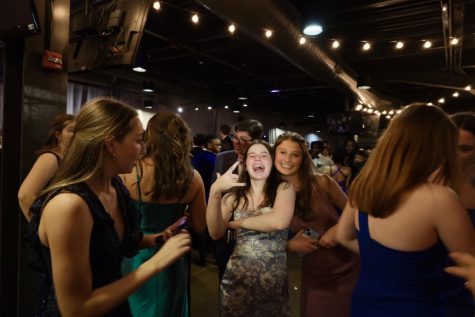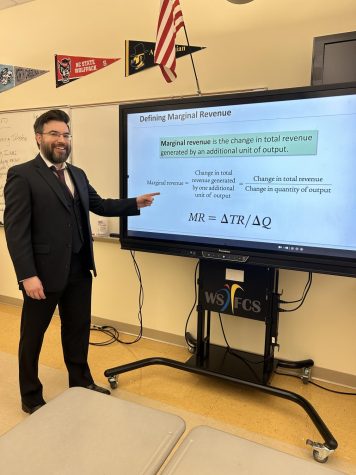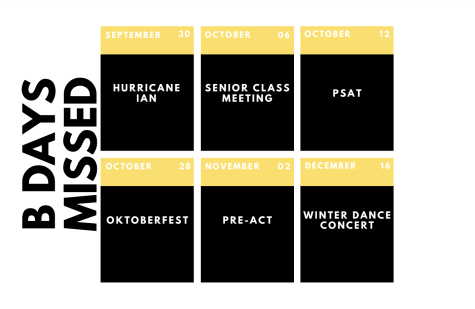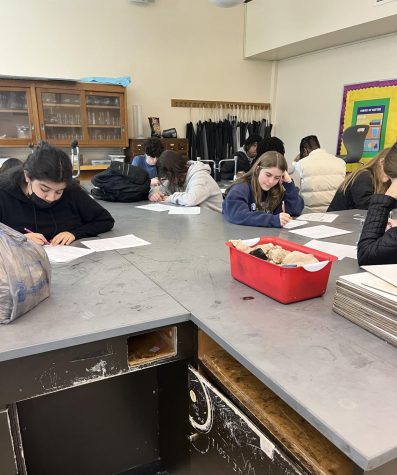Detrimental effects of prolonged screen time
October 14, 2020
The effects of prolonged screen time has always been a concern for students. Staring at a screen too long can cause a range of problems including dry eyes, blurred vision, and severe headaches. Prior to the COVID-19 pandemic, student screen time was within normal ranges of around three hours a day.
Now, students are spending 10+ hours everyday looking at their computer in order to attend school, as well as complete homework. The Board of Education, along with the district, has been working very hard to compose a plan that will allow students to return to in-person learning. Despite the possibility of returning part time in January, there is no end in sight for online school.
Students have begun dealing with the problems associated with prolonged screen usage.
“[I spend around] 10-16 hours depending on how much homework I have,” junior Hudson Jennings said. “Often I find myself having a headache by the end of the day from staring at a screen for so long.”
Jennings also spoke about how difficult it is for him to retain new information mentioned in class. School at home leaves students with a wide range of distractions along with large amounts of homework every day.
“[I wish teachers would assign] less homework because I already have to sit in class all day and then I do 6 hours of homework every night,” Jennings said. “[I] don’t go to bed till one every night because I’m doing my homework.”
Senior Audrey Nelson finds herself having the same troubles with extended screen time as Jennings.
“[It] depends on A days or B days but on average I’d say I spend 5 hours attending zooms and another 5 for homework,” Nelson said. “I do get [headaches] pretty bad. My back has been hurting from sitting all day and my eyes burn by night time. I also find it hard to focus now that everything’s online.”
Many students are struggling physically and mentally from being online all day without any in person interactions with friends and teachers. Jennings and Nelson both believe that teachers should cut down their homework time.
“I wish that teachers wouldn’t assign busy work just to keep us busy after class but instead sent us assignments that helped us to learn and understand the content they are teaching in class so that we are better prepared for class,” Nelson said.
Social studies teacher John Reynolds believes that students’ screen time has reached concerning levels. However he also feels as though students’ screen time is longer than it should be due to things like social media and video games, not just online learning.
“I do believe that the amount of time that students and teachers are working with screens is concerning,” Reynolds said. “Extended screen time can have a negative effect on a person’s mental and emotional state. That being said, I do think that it is better to have virtual school online than not having instruction at all. Furthermore, the number of hours that the average high school student spent on their phone scrolling through social media prior to e-learning, probably isn’t too far off from the total number of hours that we are online for online school.”
He also believes that students who are prone to migraines are at a disadvantage during this time but adds that blue light glasses have helped him significantly. If students are still looking for more solutions, Reynolds has some thoughts on how to reduce headaches.
“Blue light glasses are one alternative that has worked very well for me,” Reynolds said. “Another suggestion is adjusting the brightness of your screens or changing them to night-mode. If possible, I would strongly suggest students that struggle with headaches print out reading based assignments or use the immersive reader tool to have documents read to them instead of staring at the screen.”
Online learning will most likely always be a struggle for students and teachers. The extended use of screens can negatively affect students but students should look for creative ways to reduce their screen usage especially when it comes to social media. Most importantly students should remember to communicate with their teachers if they are having trouble, every educator is willing and wants to help students as best they can in this unusual time.



